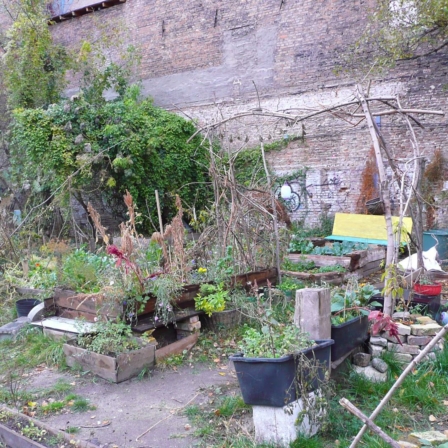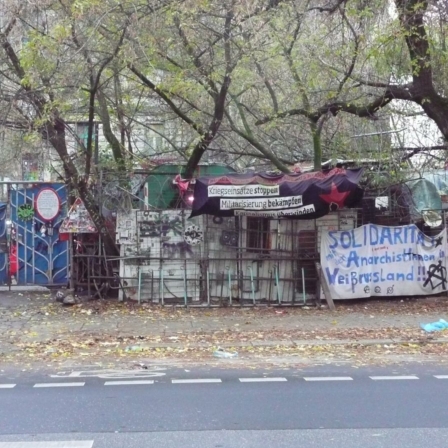This article is part of an online series about the experiences of the Sustainable Economy Forum during their trip to Berlin, 4–8 November 2012.
During their time in Berlin, the members of the Sustainable Economy Forum met numerous bodies building a more sustainable economy. What did they realise as a result?
During the trip, the forum members often ended up discussing the fact that when it comes to attitudes towards ecological, social and economic sustainability and efforts to affect change, people can be roughly divided into two camps – freaks and laggards.
Freaks believe in the importance of individual choices and unselfishness of people. Laggards see people as selfish and aspiring to their own good, the behaviour of whom can only be changed by dictates from above.
However, the forum came to the conclusion that acts by both freaks and laggards are needed, since unsustainable economy is a systemic, complex and multi-layered problem. Individuals, communities, enterprises and public administration have their own roles to play in promoting sustainable economy and they all complement each other.
Sustainable economy requires everyone’s input
The forum members concluded that a radical lifestyle change is required from individual people. Technological innovations promote sustainability but the ‘rebound effect’ easily eats away the benefits of technological development: for example, as refrigerators become more energy-efficient, a second one is bought for the basement.
Their belief is that lifestyle change has to start from the needs of the individual. Ralph Piotrowski from the Ecologic Institute who spoke to the forum agrees: “You cannot force people to change their lifestyle and behaviour. People need to have the opportunity to figure out for themselves what kind of life they want to live and make the connection with their own basic needs.
“People are experts in their own lives and you have to respect that. If you go to someone with a plan on how they should live in a sustainable manner, you will only meet resistance.”
And according to Piotrowski, public authorities have a key role in enabling more sustainable lifestyles: “Individuals need support, since you need to be strong to oppose unsustainable choices. Public authorities need to create spaces where it is possible to try out and make alternative choices. Still, you should not offer any final answers, since people need to be able to realise things by themselves.” In practice this may mean an allotment at a school where children can experiment with growing vegetables and use this to realise something about food and consumption.
The forum members consider communities and social economy important in that they seal up holes left by private and public economies. Communal activities solve many problems, especially locally, and provide important meaning to people’s lives. But first and foremost they create social value.
Public administration needs to recognise the significance of communities in a sustainable economy and support their spontaneous activities. For example, by encouraging crowdsourcing as a new way of producing knowledge, services and funding.
The social responsibility of enterprises and the reporting of it is also considered positive by the forum, since it engenders both internal and external commitment in the enterprises to aim at sustainability in their operations.
However, there is a risk that social responsibility reporting turns into a mere tool for ‘greenwash’, which led to the forum presenting an idea for discussion about whether senior management incentive systems should be linked to the realisation of social responsibility.
The forum also noted that companies solve sustainable economy issues most efficiently when it is a part of their business. Offering sustainable solutions to consumers is a precondition of individuals’ ability to easily change their consumption habits.
Sustainable economy is flexible and takes the long view
According to the forum members, the policy of sustainable economy requires increasingly bold and forward-looking political solutions. The forum considers the German energy reform, Energiewende, an example of strong political will and a social contract supported by wide-ranging acceptance, where legislation has enabled large-scale structural changes, generated new business and changed people’s consumption habits in ways which all promote sustainability.
According to the forum, the change towards a radically reduced use of resources can be done in either a controlled manner with bold political decisions or uncontrollably through a variety of crises. But the change itself is inevitable.
A controlled change is also behind the ‘Germany’s employment wonder’. The forum noted that Germany has managed to avoid the deepest unemployment potholes of the latest economic crisis through its flexible labour market. Part-time work, working hours bank and rented labour have helped the labour market to adapt during changes in the economic operating environment.
The Euro crisis was also discussed on the trip, and members noted that its roots are deep in history and, consequently, it cannot be solved by mere economic growth. According to the forum, the incredibly debt-ridden Eurozone should prepare for a long period of slow growth.
In summary, the public administration has the opportunity to turn the large ship around but it also has to be constantly open towards individuals, communities and enterprises and enable their sustainability-promoting activities. Higher level political decisions have more legitimacy and impact when people have grown accustomed to making sustainable choices in their everyday life.
The forum members were keen to emphasise that people need clear and compelling information about complex economic phenomena, since there is a real danger that society will become increasingly unequal with regard to talent and the willingness to assume knowledge. Freaks and laggards need to be guided towards dialogue so that they understand that both groups are needed for sustainable economy.
See the presentations to the forum members on lifestyle changes, social responsibility of enterprises, German energy reform, German ‘employment miracle’ and the Euro crisis.





Recommended